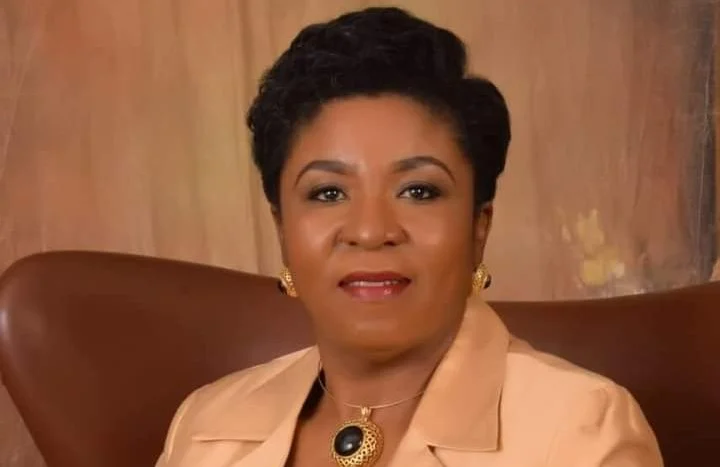The Federal Government has introduced a new digital platform designed to strengthen compliance with the Code of Conduct for public officers nationwide. The innovation, which was officially launched on Tuesday in Abuja by the Head of the Civil Service of the Federation (HCSF), Mrs. Didi Walson-Jack, aims to promote transparency, enhance accountability, and streamline the asset declaration process in the public sector.
Developed by the Code of Conduct Bureau (CCB) in collaboration with technology partners, the tool provides a centralised, user-friendly system for public officers to submit their asset declarations, access relevant guidelines, and stay updated on compliance requirements without the need for physical visits to CCB offices.

Mrs. Walson-Jack described the platform as a major leap towards modernising governance processes in line with the Federal Government’s reform agenda. She noted that the innovation would not only simplify compliance but also reduce bureaucratic delays and curb opportunities for corrupt practices. “This system is built to ensure that the process of declaring assets is seamless, transparent, and secure,” she said, urging public officers to embrace the new approach.
Speaking at the event, the Chairman of the CCB, Prof. Mohammed Isah, explained that the platform’s real-time monitoring capability would help the Bureau detect early signs of non-compliance or breaches of the Code of Conduct. He added that the system incorporates strong cybersecurity measures to safeguard sensitive data against unauthorised access. “Our goal is to use technology to improve compliance rates and strengthen enforcement,” Prof. Isah stated.
The platform’s secure web portal allows officers to create personal accounts, upload documentation, and track the progress of their submissions. It also features a comprehensive resource section containing laws, regulations, and frequently asked questions to help officers better understand their ethical obligations.
Attorney-General of the Federation and Minister of Justice, Lateef Fagbemi, SAN, lauded the CCB for the initiative, noting that it aligns with President Bola Tinubu’s vision of building stronger institutions and entrenching good governance. He stressed that digitalising compliance processes would significantly minimise opportunities for abuse while boosting efficiency across the public service.
The launch was attended by representatives from anti-corruption agencies, civil society groups, and international development partners, many of whom commended the initiative. Transparency International Nigeria’s Country Director, Auwal Musa Rafsanjani, however, cautioned that the system’s success would depend on political will, widespread adoption, and strict enforcement. “Technology is only as effective as the commitment to use it properly,” he said.
By transitioning to a paperless, automated system, the CCB hopes to cut costs, reduce administrative bottlenecks, and improve data accuracy. Automated cross-checking with other government databases will also make it easier to detect inconsistencies and flag suspicious declarations for further scrutiny.
Several public officers present at the launch welcomed the platform, describing it as a significant improvement over the old system, which often required repeated trips to CCB offices and caused unnecessary delays, especially for those stationed in remote areas.
To ensure a smooth rollout, the CCB plans to conduct extensive training programmes, both online and in person, to guide public officers through registration, submission, troubleshooting, and understanding relevant legal requirements. The Bureau has also promised round-the-clock technical support for users encountering challenges.
Experts believe the new platform could strengthen Nigeria’s compliance with international anti-corruption treaties, such as the United Nations Convention Against Corruption (UNCAC) and the African Union Convention on Preventing and Combating Corruption. Improved compliance and transparency, they argue, could also boost investor confidence and enhance Nigeria’s image in global governance rankings.
Nonetheless, concerns persist over internet access and digital literacy, particularly among officers in rural areas. Labour unions have urged the government to provide offline alternatives and ensure that no public officer is disadvantaged by the shift to a digital system.
As a reminder of the legal consequences of non-compliance, the CCB reiterated that failure to declare assets as stipulated by law could lead to sanctions, including suspension, dismissal, and prosecution before the Code of Conduct Tribunal. Prof. Isah emphasised that the Bureau would leverage the platform’s data for proactive monitoring and investigation.
With this launch, the Federal Government hopes to set a new benchmark for ethical governance and accountability in Nigeria’s public sector. Authorities say they will continue to engage stakeholders to refine and update the system, ensuring that it remains relevant and effective in promoting integrity within the civil service. Public officers are encouraged to adopt the platform promptly and contribute to building a more transparent and accountable governance framework.
Support InfoStride News' Credible Journalism: Only credible journalism can guarantee a fair, accountable and transparent society, including democracy and government. It involves a lot of efforts and money. We need your support. Click here to Donate
